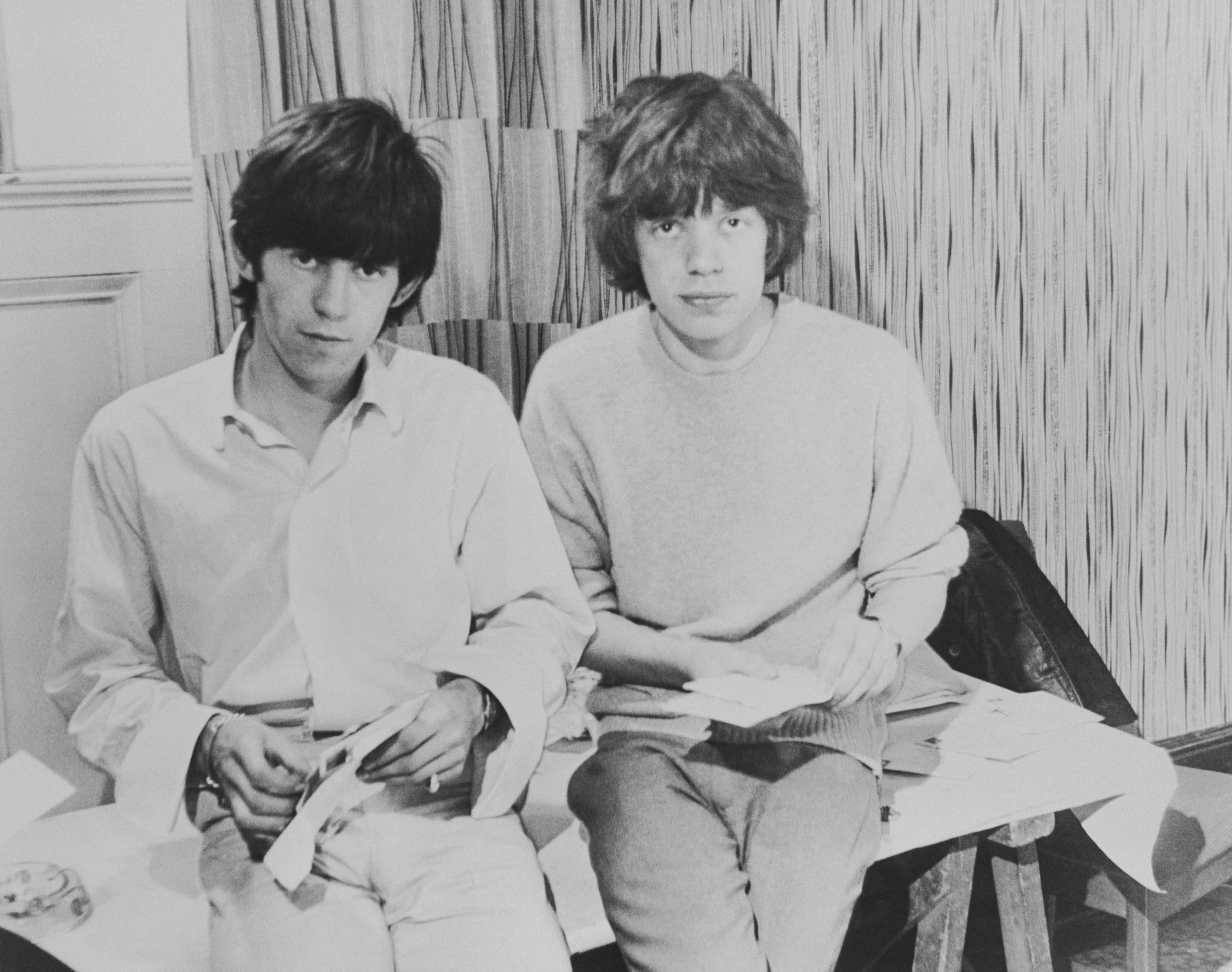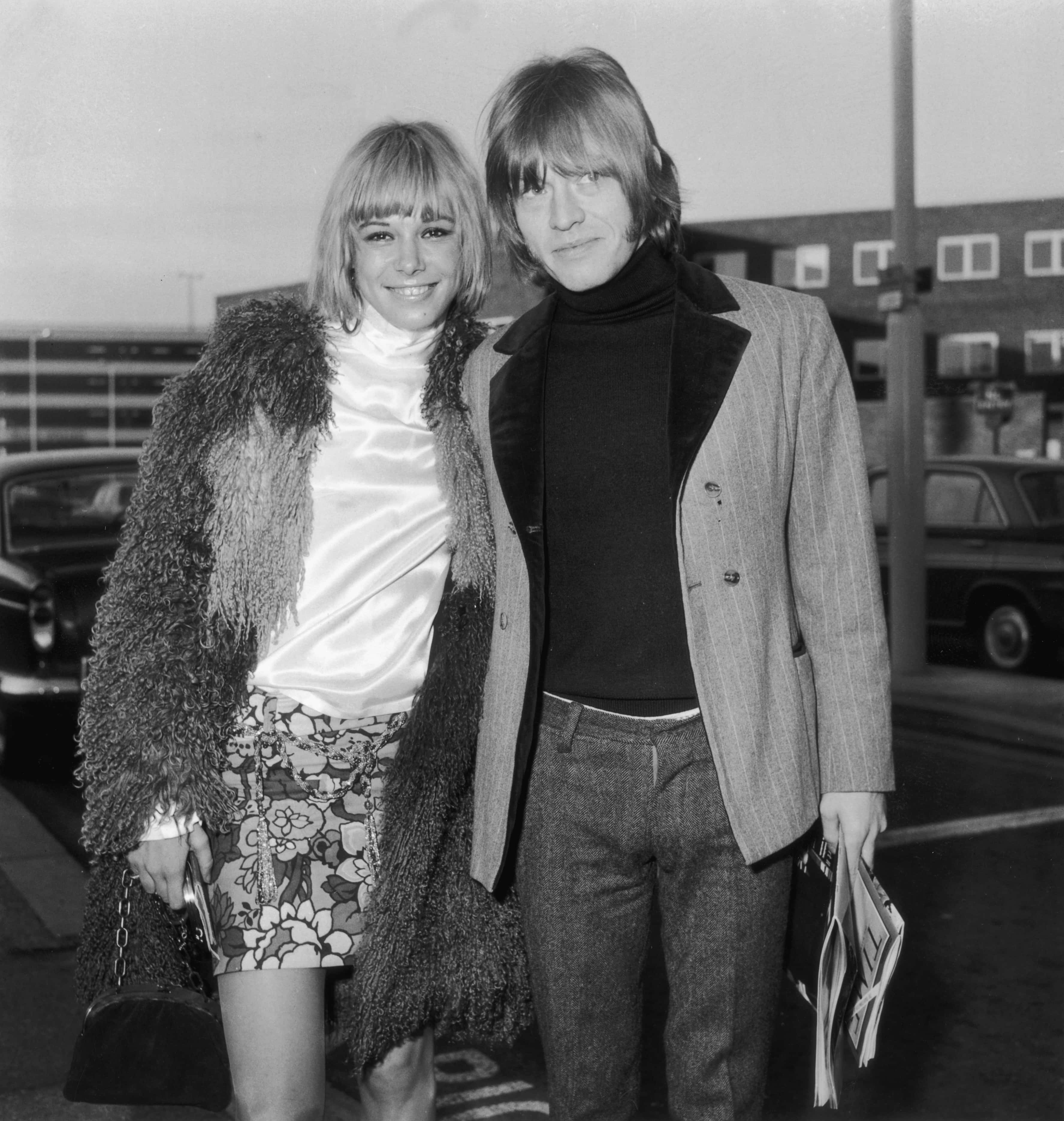Mick Jagger and Keith Richards: Why the famous Rolling Stones icons are still a match made in musical heaven

Mick Jagger, the outspoken and entertaining frontman of the legendary band, the Rolling Stones, turns 77 today, on July 26. While Jagger has long been considered the figurehead and poster boy of the iconic rock group, it's no secret that the real reason for the group's longevity is their incredible music, which still sounds as fresh, catchy and edgy as it did half a century ago.
As we celebrate Jagger's and the Stones' contributions to the music world, we would be remiss if we didn't also pay tribute to the special bond and magical chemistry that he shares with the beating heart of the Rolling Stones, the stoic and silent guitarist who is still considered their lead creative force, Keith Richards. Today we look back at the troubled history and storied dynamic of the "Glimmer Twins", as Mick Jagger and Keith Richards are collectively known as.
Richards had previously revealed quite a few interesting facts about Jagger in his 2010 tell-all memoir, 'Life', where their relationship was put under the scanner and led to some shocking truths about the history of one of rock‘n’ roll’s most beloved bands.

Founded in the heyday of the counterculture movement of the 1960s, the Rolling Stones (named after a Muddy Waters track) saw the British band profess their love for the emerging guitar blues movement in America, inspired by seminal artistes like Bo Diddley, Howlin' Wolf, Chuck Berry, Little Richard and many other great African-American musicians. Yet, Richards and Jagger knew each other from as early as September of 1950, when they studied together in Kent.
They would reunite years later in a musical capacity when Jagger was forming the Blues Boys in 1961. This could be seen as the inception of the "Glimmer Twins". The cumulative gigs they played throughout 1962 and their tour of the UK that followed was considered a soft-launch as the whole experience was still new to the fledgling band and their fans.
By 1963, the band began to officially call themselves the Rolling Stones and triggered what some considered the international renaissance of the blues in the UK. The band took a while to establish their own sound and songwriting style since a majority of songs on their first album ‘The Rolling Stones’ were actually covers of blues classics. Richards and Jagger famously together worked on ‘Tell Me (You’re Coming Back)', having found a creative rhythm and a good working relationship.
The duo’s next collaborative effort 'The Last Time', would see The Stones rise to No. 1 on the UK charts, giving the pair a lot more faith in each other's musical and songwriting capabilities. According to Richards, this was "the bridge into thinking about writing for the Stones. It gave us a level of confidence; a pathway of how to do it." The duo continued to work on material through the next few years and by their 'Aftermath' album in 1966, the duo was being credited with all of the Stones’ material.
On a vacation cruise to Brazil, Jagger and Richards were constantly pestered by an older English couple who insisted that the two reveal their real identities. "Give us a glimmer," the lady asked, probing for hints and clues and the joke name became an almost integral identity to the duo, as they began to write as well as produce a lot of the Rolling Stones' music under that Glimmer Twins moniker.
With everything that was going on during the 60s, the Stones were soon caught up in accusations of recreational drug use by the media, with both Jagger and Richards being thrust into the fray as bad boys of the music scene. In 2003, Richards spoke out, "When we got busted at Redlands, it suddenly made us realize that this was a whole different ball game and that was when the fun stopped. Up until then, it had been as though London existed in a beautiful space where you could do anything you wanted."
It was also around this time that a failing relationship between Stones guitarist Brian Jones and then-girlfriend, actress Anita Pallenberg, saw Pallenberg leave Jones for Keith Richards, as the band tried to get away from their newfound notoriety on a trip to Morocco. Cracks began to form amidst a quagmire of substance-related charges, and 1967 proved to be an eventful year for the band's reputation. Jones' spiral into drug abuse saw him unfit to continue with the band, and a month after he parted ways with the Rolling Stones in 1969, he was found drowned at his home’s pool under mysterious circumstances.

The next decade for the Stones continued in the same problematic vein. Amidst the incredible music that the band was putting out, more serious drug charges were being leveled against members of the band. Things escalated further in 1977 when Canadian authorities discovered heroin in Richard’s room while searching the premises on a warrant against Anita Pallenberg for heroin abuse. This ordeal forced Richards to reevaluate his addiction to heroin as it began to affect the band in ways that were beyond his control. Richards was wrestling with plenty of demons, as his relationship with Pallenberg also deteriorated in the aftermath of the death of their third child and her debilitating heroin addiction.
But for the much more pragmatic Jagger, things were a lot different. While remaining something of an outspoken enigma, Jagger cruised along, unscathed by the episode as his eyes were always on the music. Jagger had designs to break out on his own solo career as the constant media scrutiny and rise of the punk movement saw the Rolling Stones steadily rolling downhill in terms of mainstream public consciousness.
By the 1983 recording session of ‘Undercover’, Jagger and Richards were completely avoiding each other, with only one of them being present to record at any given time. Chris Kimsey, who co-produced the album, had to put most of the album together from older songs that hadn't made the cut previously. Things weren't looking great for the Glimmer Twins.
All of this was exacerbated by the fact that Richards saw Jagger's solo deal with CBS as a personal slight, and this resulted in his own growing lack of interest in the band. By 1986, Richards seemed to be handling the reins as Jagger was often absent during the Paris sessions of their next album, 'Dirty Work'. This period is referred to by Richards as "World War III".
Between 1986 and 1989, both Jagger and Richards released material as part of their solo projects. Keith Richards' solo album 'Talk Is Cheap', actually ended up garnering a lot more praise and acclaim than Jagger's own work. Yet the two mates who’d often shoplift together during their times at Edith Grove decided to put aside decades of animosity and forge ahead into the new era that awaited the Rolling Stones.
If The Rolling Stones peaked musically during the '70s, the next two decades saw the band at the heights of their fraternal best, and they became one of the most revered and cherished rock bands on the planet. With drummer Charlie Watts and rhythm guitarist Ronnie Wood still being core members of the band, the Stones put out plenty of well-received studio albums and still play sold-out shows to this day, well into their 70s.
In recent years, Richards has successfully been able to eliminate his favored vices. After heroin, Richards has now given up on both nicotine and alcohol, save for the occasional glass of wine that he enjoys with a meal. Today's drugs "are not interesting" enough to Richards, and this bodes well for The Rolling Stones. By coming out through this very real trial by fire, both Jagger and Keith Richards have shown us that the rockstar lifestyle might have its ups and downs, but at the end of the day, it's the music that really matters.
Both icons are consummate professionals and talented musicians, whose joy and chemistry has only increased as they went about creating wonderful compositions that still resonate with music lovers after many decades. Let's raise our glass to Mick Jagger and Keith Richards, and hope they still have a few more masterpieces in them!










